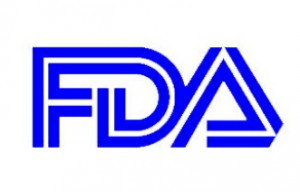The Food and Drug Administration announced this week that they are banning three chemicals linked to cancer from use in pizza boxes, microwave popcorn bags, sandwich wrappers, and other food packaging, known as food-contact substances (FCSs). This ban, which takes place February 1, 2016, comes more than a decade after consumer advocates raised concerns about the carcinogenicity of these compounds.
 Environmental Working Group and other groups such as Center for Food Safety, Center for Science in the Public Interest, Children’s Environmental Health Network, and Natural Resources Defense Council, have been petitioning the FDA for years to prohibit these substances from food packages. EWG President Ken Cook said in a statement, “industrial chemicals that pollute people’s blood clearly have no place in food packaging. But it’s taken the FDA more than 10 years to figure that out and it’s banning only three chemicals that aren’t even made anymore.”
Environmental Working Group and other groups such as Center for Food Safety, Center for Science in the Public Interest, Children’s Environmental Health Network, and Natural Resources Defense Council, have been petitioning the FDA for years to prohibit these substances from food packages. EWG President Ken Cook said in a statement, “industrial chemicals that pollute people’s blood clearly have no place in food packaging. But it’s taken the FDA more than 10 years to figure that out and it’s banning only three chemicals that aren’t even made anymore.”
The three chemicals in question are per fluorinated compounds or PFCs called perfluoroalkyl ethyl. They are used to make Teflon and Scotchgard. Critics say that Dupont, the maker of Teflon, hid evidence of harm to human health for decades. The chemicals are grease-resistant and are linked to cancer and birth defects.
Burger King and other companies stopped using wrappers with PFCs years ago. The EPA made agreements with Dupont and other chemical companies to phase out the use of these compounds, but that had no effect on the chemicals staying on the FDA’s list of approved substances in food packaging. Corporations stopped making these three compounds in 2011.
But FDA has approved more than 20 new PFC chemicals for use in food packages. EWG Senior Scientist David Andrews said, “their chemical structure is very similar to the ones that have been phased out and the very limited safety testing that has been done suggests they may have some of the same health hazards. To protect Americans’ health, the FDA and EPA should require that chemicals be proved safe before they are allowed on the marketplace.”
Cook continued, “This is another egregious example of how, all too often, regulatory actions under the nation’s broken chemical laws are too little and too late to protect Americans’ health. Congress needs to ensure that chemicals that make their way into food, either as deliberate additives or as contaminants from packaging and other outside sources, are thoroughly investigated.”
The FDA notice on the Federal Register states that “all three of the FCSs subject to the petition contain extended alkyl chains where all of the hydrogens are replaced by fluorine (hence the FCSs are “perfluorinated”). The toxicological profile of extended per fluorinated alkyl chains varies with chain length. Those with extended chains greater than or equal to eight carbons in length have biopersistence. That is defined as “persistence and accumulation of a material in a biological tissue” and means the chemicals can stay in the human body for a long time. All three of the FCSs subject to the rule have extended chains greater than eight carbons in length.
The FDA has thus confirmed data demonstrating reproductive and developmental toxicity are applicable to these compounds. The data “raises significant questions as to the safety of the authorized uses of the three FCSs subject to the petition” and concludes that “there is no longer a reasonable certainty of no harm for the food contact use of these FCSs.”





This repeats the same problem as BPA packaging – way after the fact action. And allowing ongoing use of alternative substances. In BPA’s case, Certichem lab fuund the post-BPA reformulated plastics were even more endocrine disrupting than BPA! Industry response: sue Certichem & gag them. Fortunately their study got out but it got nil press, so now the food industry touts “BPA-free” packaging while the same fundamental problem continues.